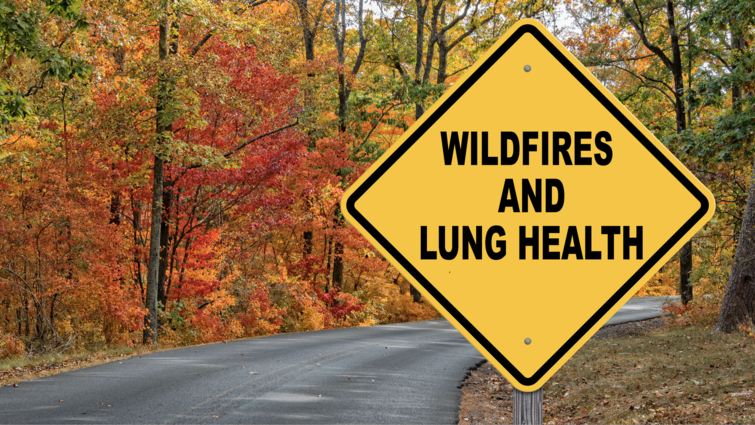
Wildfires and Lung Health
Coronavirus, wildfires and the upcoming flu season makes it more important than ever to protect your lung health. While COVID-19 has made many people more conscious about protecting their lungs, the addition of excessive heat and wildfire smoke poses a new risk to those most susceptible to respiratory problems.
Dafne Moretta, MD, a pulmonologist at Loma Linda University Health, says smoke from fires can aggravate airway diseases, can cause an irritated throat, coughing, and exasperated sinus maladies. “A higher number of particulates in the air can prompt difficulty breathing in those who suffer from asthma, chronic obstructive pulmonary disease (COPD), emphysema, etc.” she says.
Avoid exposure to indoor contaminants
Indoor pollutants such as secondhand smoke, household chemicals or radon can damage your lungs or worsen pre-existing respiratory conditions. Moretta says it’s important to make sure your house is a safe, smoke-free space. After a discussion with your primary care practitioner, you may consider checking your home for naturally occurring gases like radon that can cause lung cancer and harm the lining of your lungs.
Prevent respiratory infections
“A cold, flu, or other respiratory infection can seem harmless at first but have the potential to become severe. Protecting yourself from other infections can prevent weakening of the respiratory system, making it more difficult for your lungs to protect themselves,” Moretta says. To help prevent infections, Moretta recommends washing your hands for a minimum of 20 seconds with soap and water and avoiding large crowds.
If you smoke, quit
Smoking is the major cause of lung cancer, COPD —which includes chronic bronchitis and emphysema — and chronic inflammation. “Cigarette smoke destroys the lining of the lungs, called epithelial lining, which protects the lungs — making it easier for viruses to infect the rest of the body,” Moretta says. “It's never too late to quit smoking and reap the benefits that come from dropping the habit”, she says.
At Loma Linda University Comprehensive Program for Obstructive Airway Diseases, our physicians treat a wide range of symptoms and are experts at providing the best personalized and innovative care. To schedule an appointment call at 909-558-8097.
